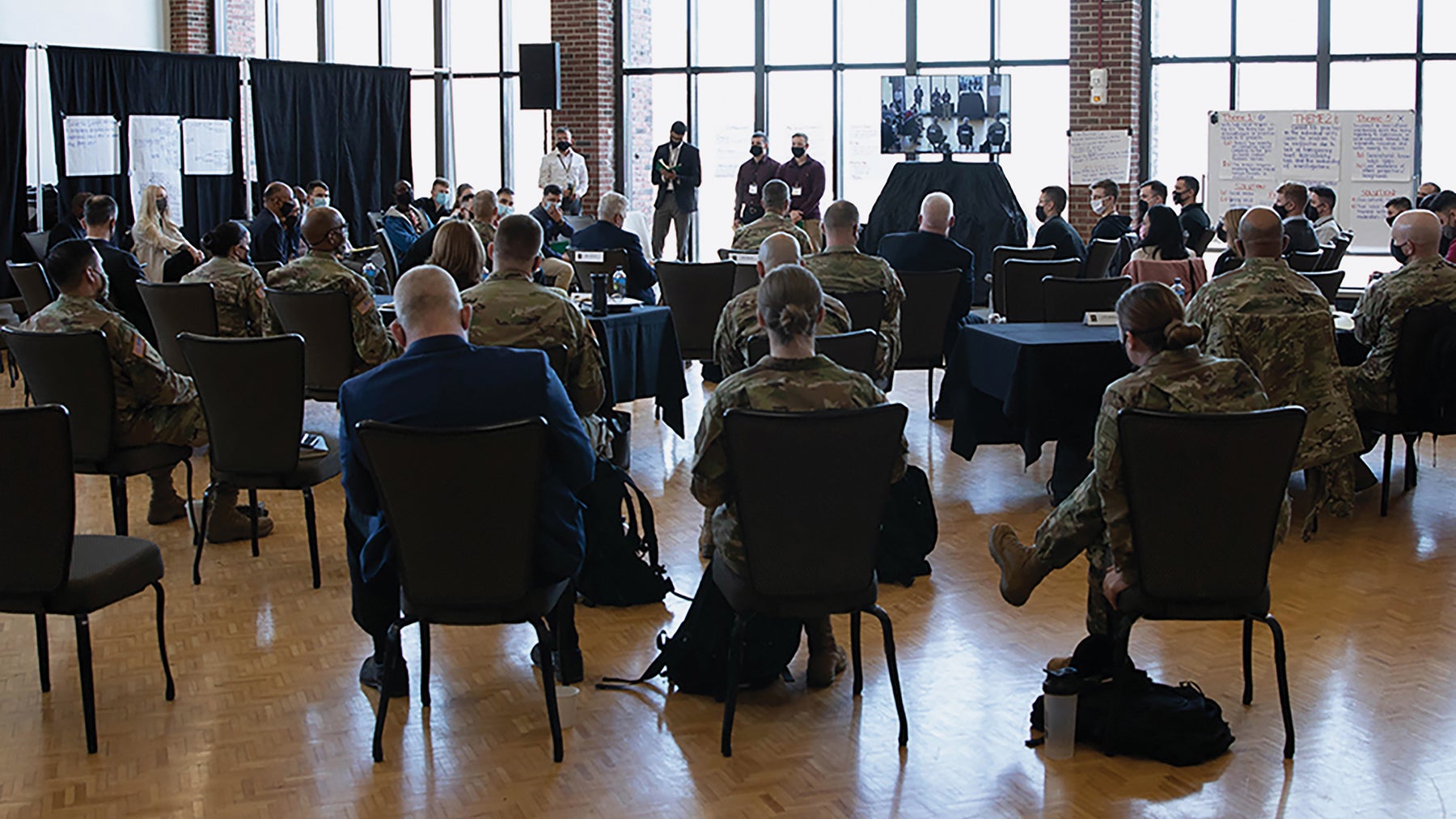There is no more important priority to the U.S. Army than our people—the men and women representing all 54 states and territories and the District of Columbia who have volunteered to serve. The Army owes them and their families a healthy and respectful environment in which to serve and live as we build combat readiness.
Last year, the Fort Hood Independent Review Committee issued its report identifying failings in climate and culture, in crime prevention and investigation, and in the structure and implementation of the Army’s Sexual Harassment/Assault Response and Prevention program. The committee report revealed that young enlisted soldiers at Fort Hood, Texas, lacked trust in the current system.
While Fort Hood was the focus, the report challenged the entire Army. In response, our leadership established the People First Task Force. The task force’s mandate is to address the committee’s 70 recommendations and transform the Army’s approach to preventing sexual assault, sexual harassment and other harmful behaviors that undermine cohesion and trust within our formations.
The task force is conducting a comprehensive review of Army efforts to prevent and respond to sexual harassment and sexual assault, engaging experts from academia and the public sector to develop bold, holistic and sweeping actions for Army senior leaders to implement across the force. This redesigned program will protect the best interests of soldiers and civilians by focusing on prevention, care and support for survivors. We must do more to prevent incidents of sexual assault and sexual harassment so that fewer lives and careers are shattered. Survivors must have confidence that their reports will be taken seriously, they will be offered helpful options for recovery, and they will be protected from any acts of retaliation.
As this article goes to print, the Army is also looking forward to seeing the assessment of the Independent Review Commission on Sexual Assault in the Military and working with the Office of the Secretary of Defense on the accepted recommendations to address sexual assault and harassment in the force.
Intolerable Behaviors
Sexual assault and sexual harassment are contrary to Army values, as are domestic abuse, racism, discrimination, bias and extremism. Research indicates that, if left unchecked, these intolerable behaviors ultimately degrade mission readiness. The task force is also working to better incorporate comprehensive prevention solutions to reduce incidents of suicide.

Further, the task force has been conducting pilot programs to measure unit cohesion and trust, as well as the effectiveness of programs meant to counter harmful behaviors at multiple installations. The assessments include soldier interviews and small-unit visits; surveys measuring morale and trust in leadership; and analysis of a formation’s leader development programs, training, awards, legal actions and soldier separation programs.
This is My Squad is one of several efforts, including the inclusion-themed Your Voice Matters listening sessions, intended to improve Army climate and culture and to select the right leaders for the future NCO corps. This is My Squad employs a grassroots approach to building cohesive teams and encouraging soldiers and civilians to better know those around them and develop greater compassion for others. Other aspects of this initiative include increasing NCO professional military education, redistributing experienced leaders and providing better reception processes for integrating new soldiers at each installation and unit.
New Initiatives
Our Command Assessment Programs have implemented initiatives to put the right future leaders, who have the demonstrated leadership skills and qualities to support Army priorities, in the most consequential leadership positions.
The Army is a racially and ethnically diverse organization, and female leaders comprise an increasing share of the total force, including in infantry, armor and field artillery MOSs. To be successful in the future, we must leverage the strengths of each individual. It is critical to mission readiness.
The Army is fully committed to implementing all the Fort Hood committee’s recommendations and applying them broadly across the service. We have already taken significant steps to empower and protect soldiers by improving the criminal investigation structure and staffing and crime-prevention procedures. We have changed the way we appoint officers who investigate allegations of sexual harassment, so that they come from an outside brigade-sized unit. But there is more to do.
“People First” is not just a slogan—it is the key to Army readiness, modernization and reform. As the leaders of the People First Task Force, we are working to promote an Armywide culture of dignity and respect that sustains the bond of trust between the leaders and led. Soldiers, whose courage and commitment make the U.S. Army the greatest in the world, deserve no less.
* * *
Lt. Gen. Gary Brito is the Army’s deputy chief of staff for personnel, the Pentagon. He previously served as commanding general, Maneuver Center of Excellence, Fort Benning, Georgia. He has deployed to Iraq and Afghanistan. He is one of the tri-chairs of the Army’s People First Task Force.
Diane Randon is the Army’s assistant deputy chief of staff for intelligence, the Pentagon. A member of the Senior Executive Service, she is a 35-year federal civil servant. She is one of the tri-chairs of the People First Task Force.
Sgt. Maj. Julie Guerra is the sergeant major for the Army’s deputy chief of staff for intelligence, the Pentagon. She previously served as the command sergeant major for the U.S. Army Cyber School, Fort Gordon, Georgia. She has deployed to Iraq and Bosnia. She is one of the tri-chairs of the People First Task Force.

